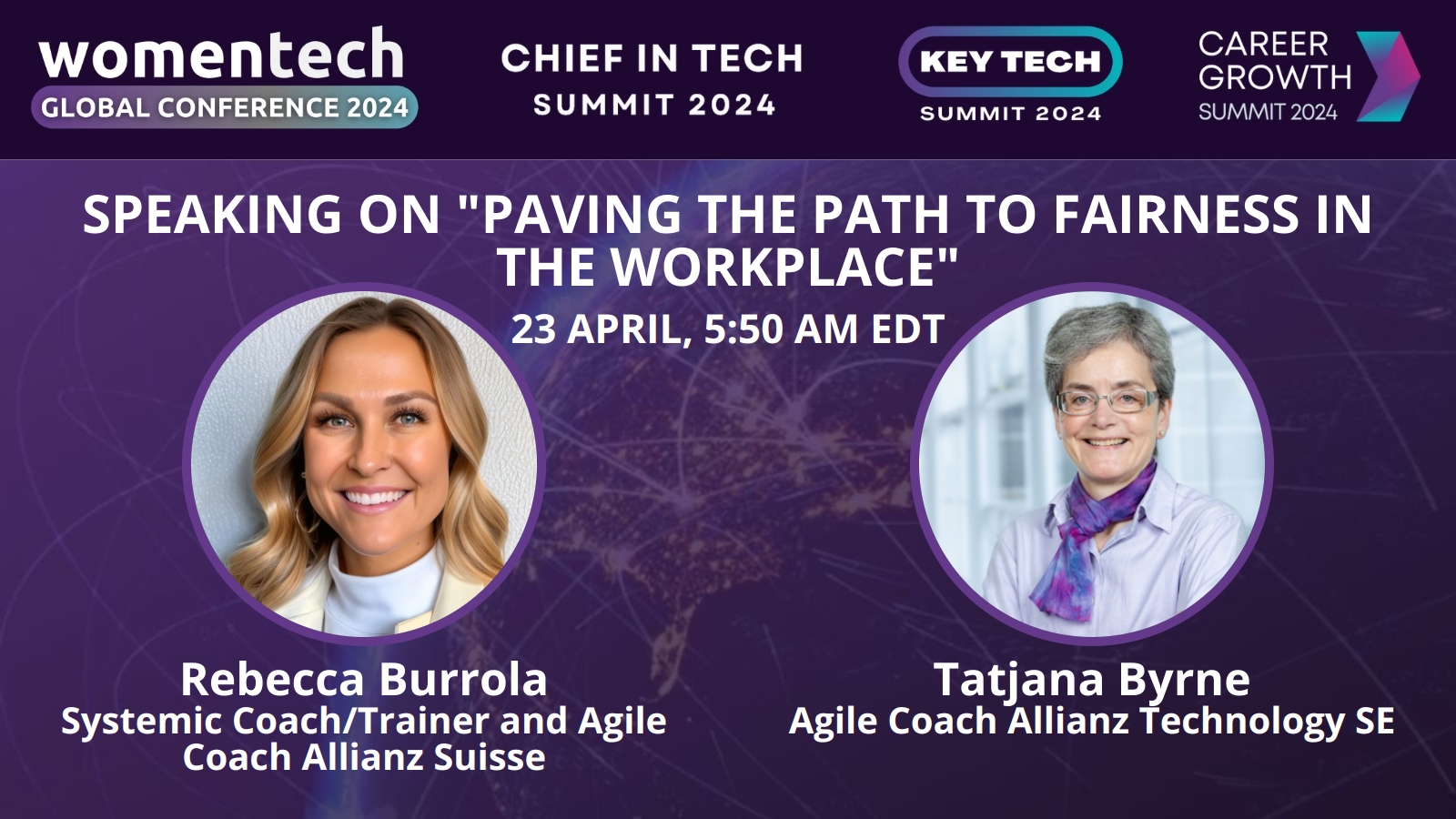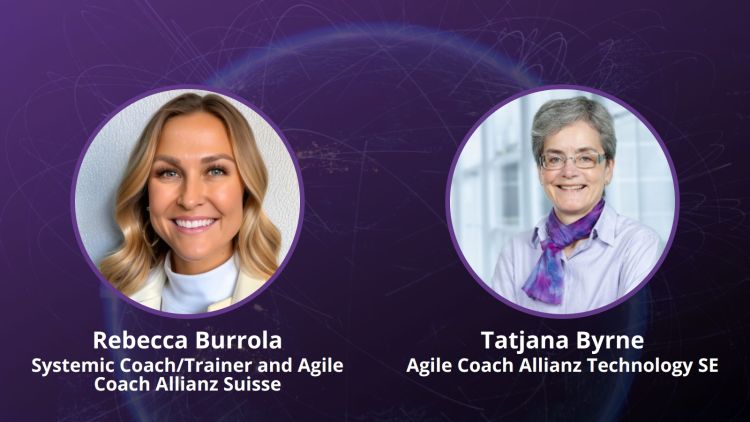Vote by Sharing
Unite 100 000 Women in Tech to Drive Change with Purpose and Impact.
Do you want to see this session? Help increase the sharing count and the session visibility. Sessions with +10 votes will be available to career ticket holders.
Please note that it might take some time until your share & vote is reflected.
Session: Paving the Path to Fairness in the Workplace
Introduction:In the era of rapid technological advancement, particularly in artificial intelligence (AI), the dialogue around ethics, fairness, and equity in the workplace has become increasingly pivotal. This abstract focuses on the "Role of Ethics in Shaping Workplace Fairness in an AI World." It draws on insights from the GPAI's "AI for Fair Work" report and the BCG study on cybersecurity workforce diversity, integrating philosophical perspectives, particularly from Honneth, on workplace democracy and social harm. Furthermore, in the paper by Bankins and Formosa we are offered a definition of meaningful work that is combined with a discussion of the implications of AI . This encompasses job design, skill cultivation and use as well as the perceived value of work, autonomy and the way work promotes a sense of belonging. Our hope is to stimulate a discussion with delegates about how women can actively shape the way in which meaningful work is understood and carried out and in turn shape the way AI is used to enhance the opportunities of all.
Main Points:
1. AI and Fair Work Principles: This section, leveraging insights from the GPAI report, will focus on how AI can be utilized to ensure fair work, promote equity, and create jobs that are resilient to future technological shifts. It's crucial to understand that bias and discrimination in AI are not just relative issues but forms of social harm that require absolute standards of fairness. In this context, ethics plays a dual role as a guide and a brake, preventing the intensification of unfair practices in AI-driven work environments.
2. Cybersecurity and Women's Role: Drawing from the BCG report, we will explore how the field of cybersecurity aligns with women's priorities, including making meaningful societal contributions, earning competitive salaries, and achieving work-life balance. The focus will be on the importance of creating workplaces that are not only welcoming and respectful but also provide opportunities for advancement and recognition. This approach will demonstrate how diversifying the cybersecurity workforce can enhance capabilities and business performance.
3. Ethics as a Guiding Principle: Building on Honneth's argument, this segment will delve into the critical role of business ethics in protecting democratic principles amid rapidly evolving technological landscapes. We will discuss how ethics must serve as both a guide and a brake to AI development, essential for preventing the worsening of existing unfair work conditions under the influence of AI.
4. Impact on Women and Diverse Cultural Groups: The concluding segment will address the nuanced impact of AI and technological changes not only on women but also on the diverse cultural groups they belong to. The aim is to extend the conversation beyond gender, encompassing a wide range of cultural backgrounds. We'll explore strategies for developing and governing AI in ways that are inclusive and equitable, ensuring that all groups have a voice in shaping the future of work in an AI-influenced world.
Conclusion:
Our talk will not only highlight challenges but also propose actionable strategies(below) to ensure AI acts as a force for positive change in the workplace, particularly for women and underrepresented groups. We will draw on real-life example that we know of are involved in to show how women can be drawn to careers in leading-edge technologies or understand how to adapt possibly dormant expertise and capabilities. By integrating ethical considerations into AI development and deployment, we aim to foster a future where technology enhances workplace fairness and democracy.
Key Takeaways
- 1. Participants will learn about ethical standards in AI to counter bias and ensure workplace fairness, with a focus on transferable strategies for implementing these standards in various professional settings.
- 2. The session will highlight the essential role of women in cybersecurity, emphasizing how their involvement enhances business performance and offering strategies for women to transfer these skills across different sectors.
- 3. Emphasizing the need for ethical AI development, the talk will provide actionable and transferable strategies to maintain workplace democracy and equitable conditions, beneficial for women and diverse cultural groups in various industries.
Bio
Speaker 1: Rebecca Burrola, originally from California, has carved a distinguished path in the realms of resilience, growth mindset, and epistemic beliefs. With a Master's degree in Psychology and Learning Sciences from Ludwig Maximilian University of Munich, Rebecca blends academic rigor with practical insights. Her passion for skiing mirrors her approach to personal and professional challenges—tackling them with agility and enthusiasm.As the founder of The Refinery, Rebecca has channeled her expertise into leadership coaching and training, empowering individuals and teams to refine and elevate their skills. In addition to her entrepreneurial endeavors, she plays a pivotal role as a Transformation Agile Coach at Allianz Suisse. Her work is not just about change; it's about refining and enhancing the way people and organizations operate, ensuring they are equipped to face the challenges of a rapidly evolving business landscape.
Speaker 2: Equipped with an engineering science degree from Oxford University, Tatjana Byrne headed first towards Financial Services and a nascent derivatives trading sector before becoming an IT consultant with over two decades of experience. Alongside her passion for fencing she has also pursued various academic interests in her spare time and armed with a MSc in International Business and PhD in Organizational Studies has tackled topics as diverse as the impact of COVID on worker representation and the nature of organizational change in the cultural sector.
As an agile coach for Allianz she works across geographical boundaries, time zones and cultures to effect large-scale technological and organizational change.



